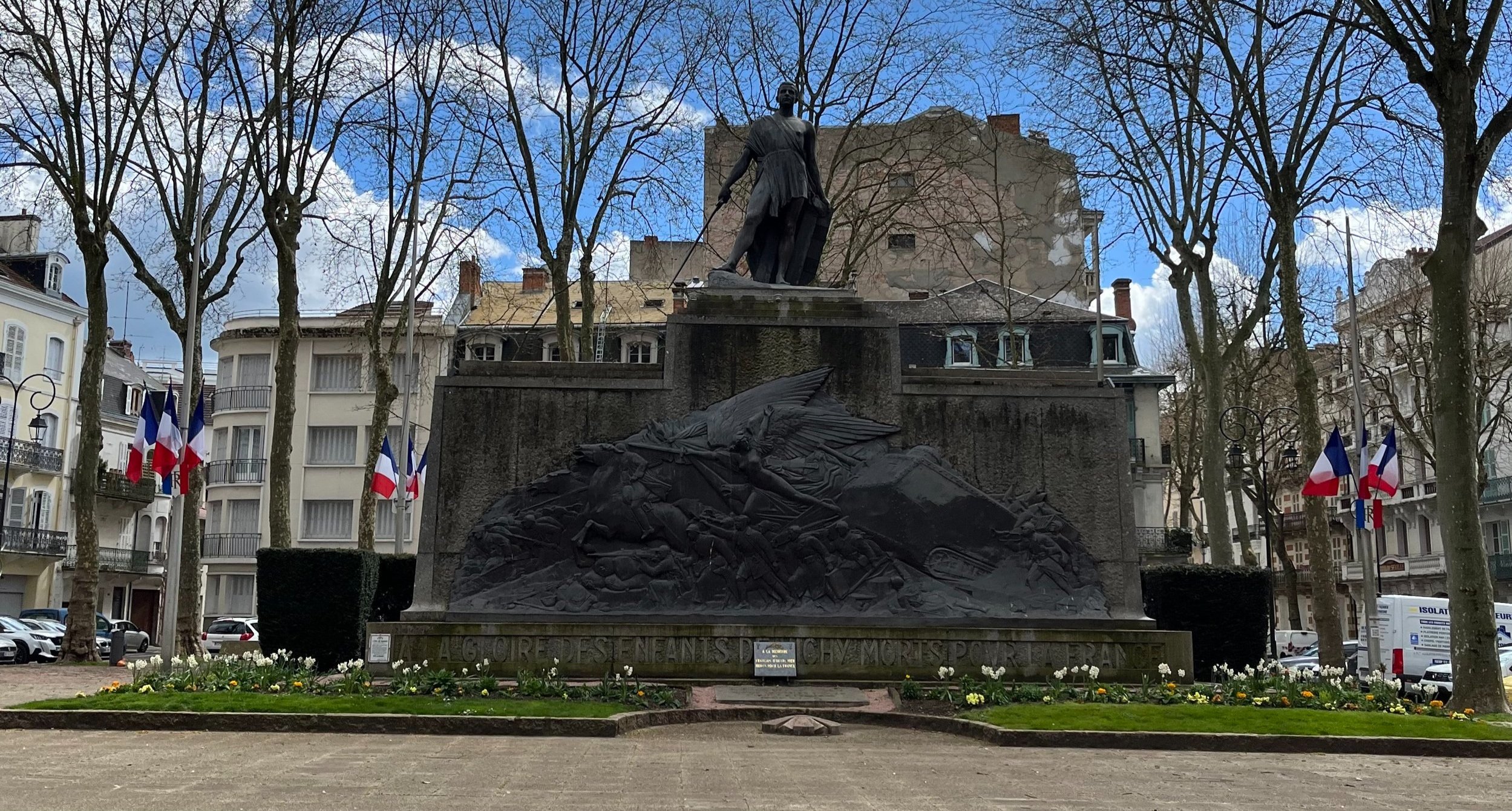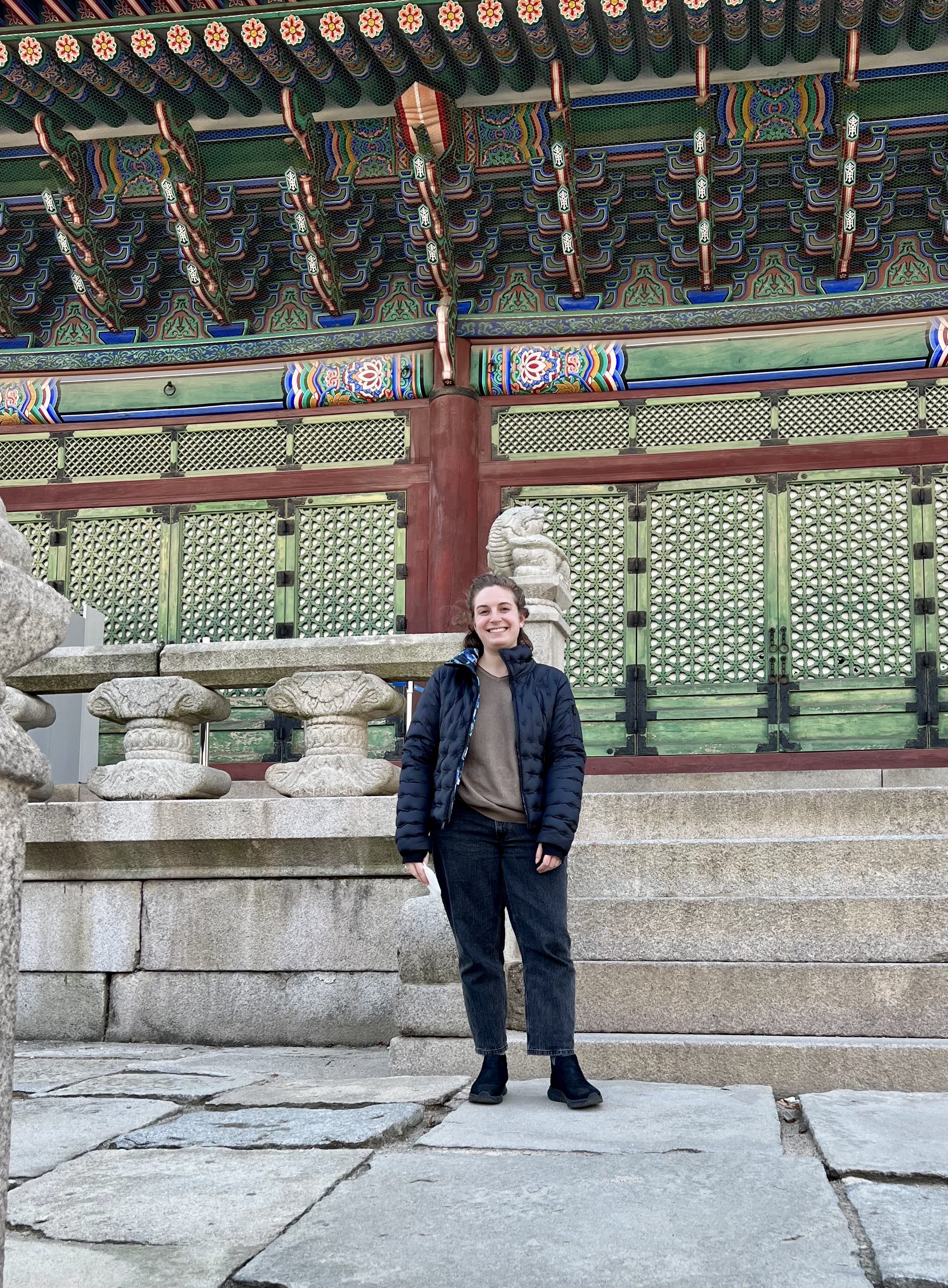
Teaching Philosophy
War Memorial, Vichy, France, 2023
Teaching Background During my doctoral program, I have delivered invited lectures on psychoanalysis, critical theory, museum studies, college research skills, and Korean film at both Duke University and Guilford College. I have over nine semesters of teaching experience at various levels, on my own and as part of various teaching teams. I have been responsible for grading assignments ranging from weekly reflections to year-long senior theses, running peer workshops, leading discussions, and delivering lectures anywhere from ten to seventy-five minutes in length. I received my Certificate in College Teaching from Duke University in 2025 and was a 2023 Preparing Future Faculty Fellow.
Because of my training as a comparatist, my goal in every course is to challenge how my students think about a certain category or delineation. Why don’t we typically read Korean novels in postcolonial literature courses? How do we decide whose stories to include in history museums? When do postwar eras truly begin and end? These questions and others push students to think differently about the role literature and culture play in shaping the way we see our world. I am prepared to teach a broad range of courses, including comparative and/or focused courses on Europe and East Asia, courses that introduce students to memory studies, postcolonial studies, and world literature, as well as more specific courses on South Korean twentieth and twenty-first-century novels and film and transnational World War II literature.
Creating Space for Contentious Topics Due to the nature of my expertise, my courses ask students to confront some of the most harrowing topics of contemporary study: mass violence, colonization, war, genocide, and discrimination. These stories are a reality of our world that students will eventually have to confront; many have already. It is important to credit the knowledge and empathy our students are capable of bringing to such discussions, while still guiding them to further critical thought. Sometimes, students will have to read stories that make them upset, and I encourage them to follow these reactions to new conclusions rather than push them out of the classroom or their analysis. Following this philosophy, I always begin the semester by having students create a set of discussion guidelines together. Since these guidelines come directly from the students, they feel a sense of ownership in the classroom community and have the language to express how they best feel respected.
A World of Objects Literary studies give us tools to think about a lot more than just words on a page. Alongside novels, memoirs, and poetry, I also include films, photographs, artwork, and museums as objects for analysis in my syllabi. I strive to teach students that the way they are trained to read novels in an academic setting can be applied broadly to the world around them. In my course Memorial Museum Fever, we learned how to “read” memorial museums by thinking about them in terms of narrative, tone, and language. By the end of the semester, students were able to understand museums not simply as historical repositories but rather as narrative spaces through which political, social, and moral goals are inscribed.
Teaching Writing My main goal in teaching writing is to introduce students to the premise that the cultural narratives people consume concretely alter their relationship with the past. I push my students to think about the ways that they, as readers and writers, are entangled in the co-creation of that past and the contemporary ideologies we circulate to define it. I start with objects they might find familiar—novels, film, museums—and ask them to think about narratives in different ways, through close readings and by considering works within their cultural contexts.
My students start with two basic questions: 1) How do I interpret this text? and 2) How might people in a different place/culture/time interpret this text? This method encourages students to have confidence in their interpretive voices and enables them to engage with the plurality and subjectivity of such interpretations.
I plan assignments holistically so that students can revise their writing throughout the semester to produce more sophisticated final papers. I break down these long-term revision processes to show my students how good writing practices create scaffolding that allows more creativity, not less. For example, in my museum course, students complete a series of two-to-three-page close reading and summary assignments, which they then have the option to revise and use in their term paper. I also facilitate peer workshops and teach mini lessons on important writing components like formulating claims.
Humanities Fieldwork As a humanities scholar who participates in site-specific fieldwork around the world, I am passionate about giving my students the chance to do the same. I consciously plan my courses to incorporate field trips to local museums or memorials and whenever possible bring in practitioner-speakers from museums across the globe. It is important to me that students see their work as deeply entangled with their communities, rather than constrained to the classroom. Museums can be an easy entry point for students since they are often familiar and students are always excited to get out of the classroom. I want to change how my students view careers in the humanities to reflect the dynamism of our research.
To that end, I have also served as a mentor on a summer undergraduate research project involving local archives. I helped guide students to set reasonable research goals while following new directions from the archive. As a graduate fellow for the Duke Forum for Scholars and Publics, I also organized a community event that brought museum practitioners and artists together with memory scholars to discuss the ways in which memorial museums work at the intersection of different community and academic centers. By modeling this work, I teach my students the value of publicly engaged scholarship.
